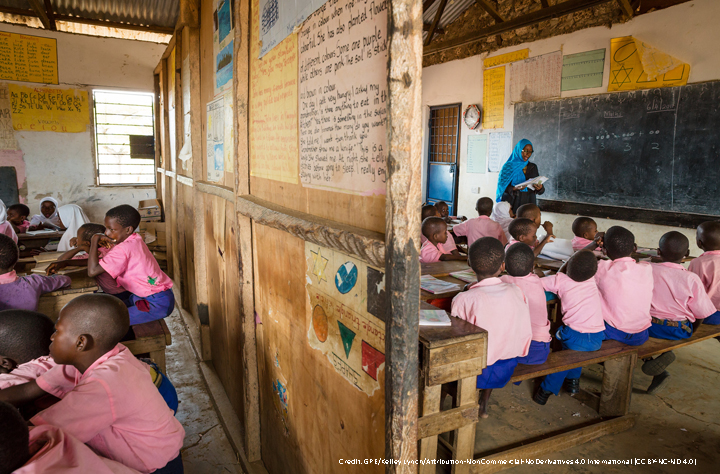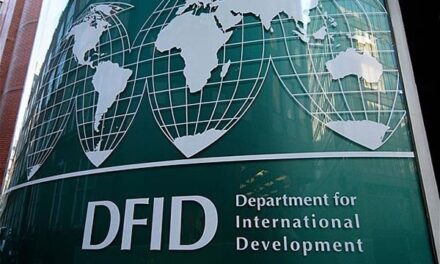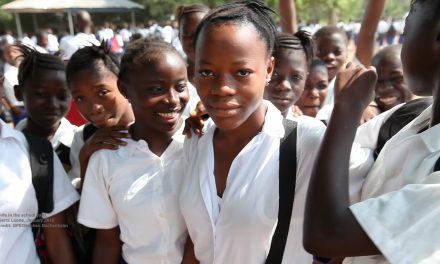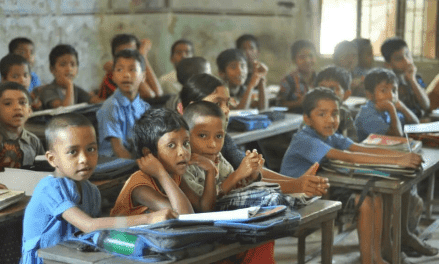This article was written by David Archer, Head of Participation and Public Services, ActionAid International and published on the ActionAid website on 17 May 2021.
On 28 and 29th of July 2021 the Global Education Summit co-hosted by UK Prime Minister Boris Johnson and President Kenyatta of Kenya will be a pivotal event for the financing of education worldwide. Most of the focus in the run up to the event will be on whether donors reach the $5 billion target for the replenishment of the Global Partnership for Education. But the much bigger test is whether enough will be done to plug the estimated $210 billion reduction in domestic financing for education caused by falling GDP and tax revenues triggered by Covid.
Amidst growing calls for the decolonisation of financing for social development the optics of a Global Education Summit that focuses only on donor pledges would be deeply problematic. It is thus important that the voices of lower and middle income governments joining the Global Education Summit in July are heard, both through making individual commitments and through joining a collective political statement that addresses the real challenges surrounding domestic financing of education.
President Kenyatta has recently got the ball rolling by developing a Call to Action on Education Finance to which he will be seeking sign on from Heads of State. This statement, to be published shortly, will include some important points that connect education financing to wider issues. For example it will call for bolder and broader action on debt relief, and also for addressing long term global liquidity needs through a meaningful new allocation of Special Drawing Rights (SDRs) by the IMF and redistribution of these to lower income countries. These are the sort of strategic financing issues that profoundly affect the resources available for education, but which are rarely picked up in education spaces.
Kenyatta’s statement will recognise that domestic financing is and will remain the most significant and sustainable form of funding for education – reinforcing the clear message from the 2016 Education Commission that 97% of education funding comes from domestic resources, not from aid or loans. The emphasis in Kenyatta’s statement will be on encouraging countries to either maintain spending on education above 20% of overall national expenditure or to increase spending progressively towards this benchmark in the coming five years. This echoes a long term domestic funding requirement of the GPE.
Unfortunately a 20% share of a small pie is a small amount – and there is not enough attention paid to increasing the size of the pie. Whilst action on debt and SDRs might help to increase overall resources in lower and middle income countries, the most significant means to increase the size of the overall pie would be by taking action to increase tax revenues. Many education advocates have connecting the struggles for tax justice and education justice for several years – as illustrated by the recent collection of 25 articles on tax and education, and the toolkit Financing Matters produced by the Global Campaign for Education.
Tax is an area where lower and middle income countries could be encouraged to make bold individual commitments to their own citizens when speaking at the Global Education Summit. They could for example commit to expand the tax-to-GDP ratio by 1% each year through progressive taxes. This is in line with the IMF’s latest Post-Pandemic Assessment of the Sustainable Development Goals that considers ‘increasing the tax-to-GDP ratio by about 3–7 percentage points over the medium term’ to be ‘an achievable aspiration for many countries’. Countries could also promote specific progressive tax reforms such as windfall taxes on excess profits of big digital companies or more progressive taxing of the wealthiest individuals– and earmarking increased revenue for the Covid response, including education. Many higher income countries are moving towards more progressive corporate and individual wealth taxes – and it makes sense for lower and middle income countries to do so too.
Action to expand tax revenues (whilst maintaining budget shares to education) is certainly a more realistic route for countries already spending 20% of their budgets on education. It is problematic to indefinitely expand the budget share allocated to education – when health, water and other sectors also competing for the same funds. Rather than fighting over a small pie, focusing on taxes becomes a shared cause where education advocates can become allies with those working on other public services – where there are often critical inter-dependencies.
Unfortunately, the capacity for countries to increase domestic spending on education is perhaps determined more than anything by the policy advice they receive from the IMF. For many years a centrepiece of IMF policy advice has been that countries should freeze or cut public sector wage bills (in 78% of countries). Teachers are the largest single group on the public sector wage bill and teacher salaries often make up over 90% of the education budget. In many countries, if you have to achieve an overall freeze or cut, it is almost impossible to recruit new teachers (even where there are serious shortages) or to pay existing teachers a living wage. Despite some progressive shift of rhetoric from their HQ, the IMF is urging a rapid return to austerity in 85% of countries to whom their provided emergency loans for Covid. This will profoundly undermine spending on education and other public services and significantly affect the chance of achieving the Sustainable Development Goals.
The Global Education Summit in July could mark a turning point where there is a real partnership between countries, collectively looking to address the systemic challenges in financing education. It could move us on from the dominant discourse of the past where disproportionate attention was paid to aid and loans and the views of donor countries. It could reframe the agenda and look at the need for both global and national action to address debt, austerity, tax, and other strategic financing issues that profoundly affect education systems worldwide. In the context of Covid and in the face of the climate crisis it is clearly the time to look forwards.





